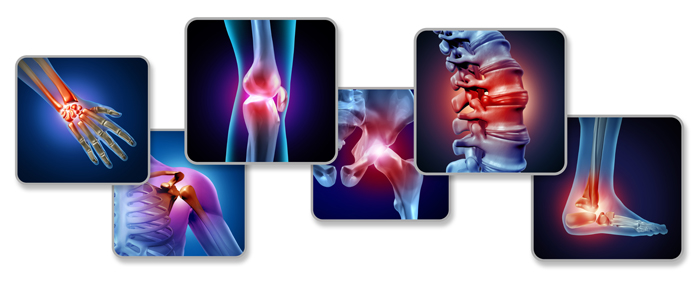Orthopedics - Arthritis
Arthritis is not one disease, but it is an informal way of referring to joint pain or joint disease. It can affect one joint or multiple joints, causing severe joint agitation. It is a chronic condition, which means it does not go away and will likely require lifelong treatment that can happen to anyone from any walk of life.
If gone unidentified and not given proper treatment quickly, it leads to permanent, irreversible damage to our joints. Some people are genetically more likely to develop problems, while for others, certain factors interact with genes to increase their risk of arthritis further.
To better manage the condition at an early stage, one must refer to the orthopedic specialist in Bangalore who specializes in treating joint problems.

What is Arthritis?
"Arthr-" refers to joints, "-itis" means inflammation; it is a chronic disorder that mostly affects the joints but can also involve other organ systems like the skin and lungs. There are more than 200 different arthritis and related conditions that cause joint pain.
It's more than just the joints' wear and tear, and it causes your bones to rub together and make your joints inflamed with subsequent pain and even bone spur formation.
What are the Types of Arthritis?
The most common types are:
- Inflammatory arthritis
- Rheumatoid arthritis
- Ankylosing spondylitis
- Degenerative arthritis
Osteoarthritis arthritis - Crystal arthritis
Gout
What are the Symptoms of Arthritis?
Symptoms of arthritis can develop suddenly or gradually. As with certain arthritis, symptoms may come and go or persist over time.
However, one must seek medical care when experiencing these key warning signs:
- Joint pain increases with prolonged activity
- Stiffness
- Tenderness and swelling
- Bone spurs
- Cracking sensation
- A decreased range of motion
What Causes Arthritis?
Most arthritis is linked to a combination of factors, but some have no exact cause and appear to be erratic in their advent:
- Previous joint injury because of accidents
- Past orthopedic operations
- Obesity
- Abnormal joint or limb development
When to See a Doctor?
It is common to have swelling or stiffness in your joints from time to time. It may be true if you are old and perform strenuous activities which are physically taxing. But how can you tell the difference between early signs of arthritis and normal pain?
A diagnostic test from an orthopedic doctor in Bangalore lets you start the proper treatment at the right time.
Request an appointment at Apollo Spectra Hospitals
Call 1860 500 2244 to book an appointment
What are the Risk Factors of Arthritis?
Certain risk factors have been associated with arthritis. Some of these factors are modifiable, while others can't.
Non-modifiable risk factors:
- Genetic factors
- Age
- Your sex
- Previous joint injury
Modifiable risk factors:
- Overweight and obesity
- Joint injuries
- Infection
- Challenging occupation
What are the Complications in Arthritis?
- Sleep difficulties
- Skin problems
- Weakness in heart, lung damage
- Numbness, tingling in your hands and feet
- Difficulties in moving
- Joints may become twisted and deformed
What are the Remedies for Managing Arthritis?
- Oral and topical pain relievers help with the pain
- Manage your weight
- Get enough exercise
- Use hot and cold therapy
- Try acupuncture
- Get a massage
- A plant-based diet
What are the Treatment Options for Arthritis?
You may have to try various therapies or combinations of treatments before deciding what works best for you. Popular treatment might involve:
- Medications
- Non-pharmacologic therapies
- Physical or occupational therapy
- Splints or joints assistive aids
- Patient education and support
- Weight loss
- Surgery, including joint replacement
Medical treatment for inflammatory types of arthritis is like a balancing act using the lowest dose of medications needed to control the disease to minimize the medications' side effects.
Your doctor may adjust your medication dose and change or add medications based on your symptoms and your laboratory tests. Medications will depend on the type of arthritis:
- Analgesics
- Non-steroidal anti-inflammatory drugs (NSAIDs)
- Counterirritants
- Disease-modifying antirheumatic drugs (DMARDs)
- Biologics
- Corticosteroids
Conclusion
Being in pain because of arthritis can often lead to anxiety. However, it is essential to tackle these emotions carefully and look for the right treatment, support, knowledge, and approach, which let you live a fulfilling life pain-free. You must see an orthopedic doctor when you develop a new symptom or aggravate your pain week by week.
Usually, the first symptom of arthritis is a pain in the joints. It can give a burning feeling or a dull ache. Often, pain begins when you have used the joint a lot, for example, if you are an athlete or walk huge steps in a day. Some people complain of tingling and numbness in the joints when they first wake up.
Diet is closely linked to arthritis and helps manage the risk. Though specific foods, food sensitivities, or intolerances are not known to cause arthritis. But inflammatory foods, especially animal-derived foods and diets high in refined sugar, can exacerbate symptoms and provoke an immune system response.
Although the cure for arthritis is unknown, some medications can slow down its effects and minimize joint inflammation. It is a chronic condition, which means it does not go away and will probably require lifelong treatment. Arthritis pain can be persistent, and for many types of arthritis, like inflammatory arthritis, there is a clear benefit in starting treatment in the first stage.
Treatments
Our Top Specialities
NOTICE BOARD
CONTACT US
CONTACT US
 Book Appointment
Book Appointment


.svg)
.svg)
.svg)
.svg)








